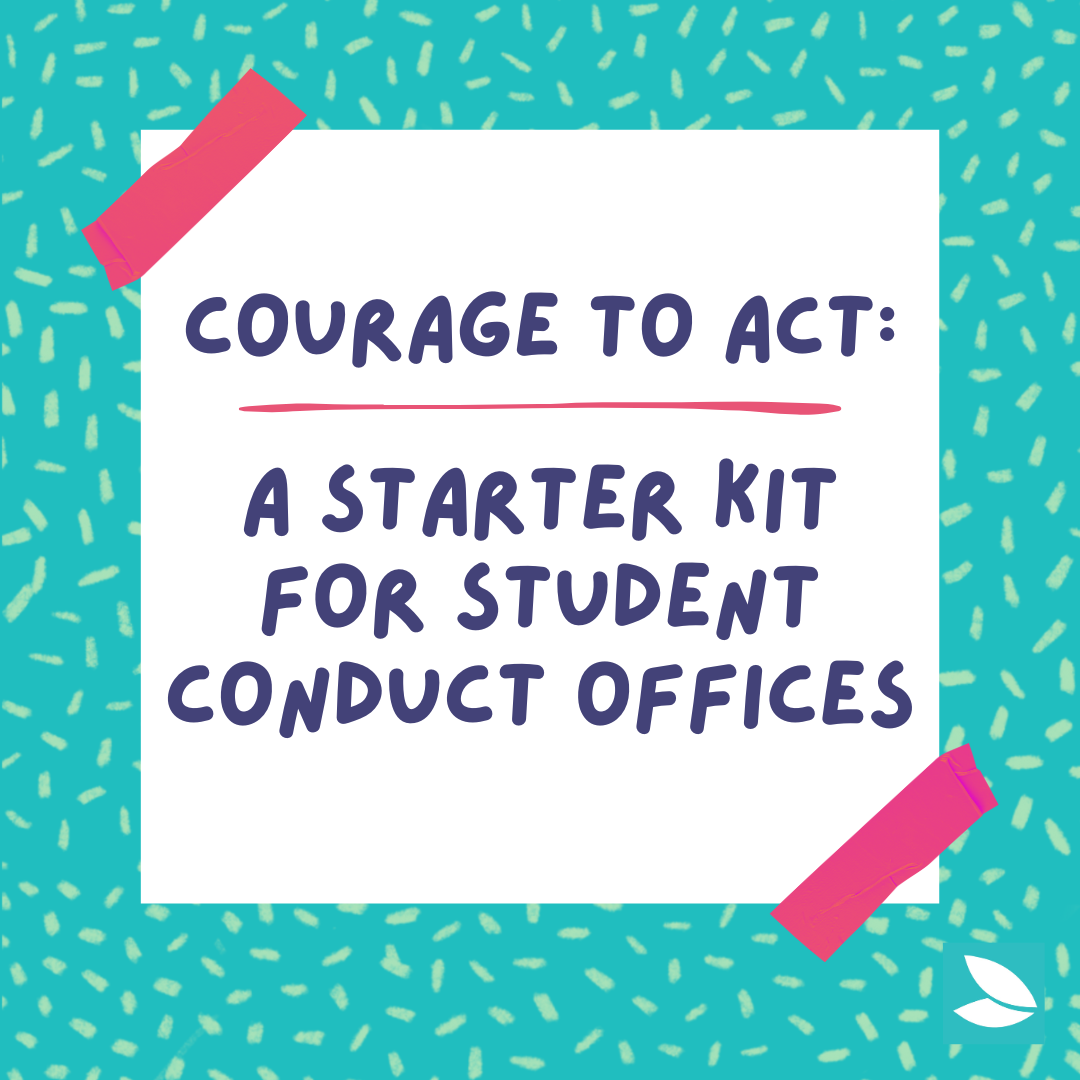Courage to Act: A Starter Kit for Student Conduct Offices
Responding to non-academic misconduct at post-secondary institutions can be complex, especially in the context of addressing sexual and gender-based violence.
Administering complaints processes by conducting investigations and adjudicating cases of gender-based violence in ways that are trauma-informed, procedurally fair, and reduce harm is critical. It requires understanding and applying foundational standards when implementing institutional policies and procedures, careful and appropriate risk assessment practices, and a trauma-informed, accountability-focused approach to working with respondents or persons who have caused harm. A key part of this work is recognizing the need for meaningful accountability options beyond institutional complaints processes.
Recognizing these tensions and complexities, Possibility Seeds compiled the following tools and toolkits to support those working on student conduct in cases of gender-based violence.
A Comprehensive Guide to Campus Gender-Based Violence Complaints: Strategies for Procedurally Fair, Trauma-Informed Processes to Reduce Harm. This guide illustrates how trauma-informed practice and harm reduction measures strengthen procedural fairness in complaint processes. It maps out strategies to ensure that PSIs incorporate all three at every complaint stage to meet their obligations to create a safe and respectful working/learning/living environment.
Essential Elements for Non-Punitive Accountability: a Workbook for Understanding Alternative Responses to Campus Gender-Based Violence. This toolkit defines what non-punitive accountability practices in response to campus sexual violence are—and what they are not—and provides minimum standards to ensure their appropriate use. It complements Courage to Act’s Supporting the Whole Campus Community toolkit.
A Gender-Based and Sexualized Violence Community Risk Assessment Tool for Post-Secondary Settings. This is the first evidence-based tool to assess the risk of individuals where a complaint of GBV has been made at a PSI. It is intended for all support providers on campus, including peer support workers, sexual violence office staff, and on-campus counsellors and psychiatrists. It assesses community risk in a survivor-centred, and trauma and violence-informed manner.
Supporting the Whole Campus Community: A Roadmap Tool for Working with People Who Have Caused Harm. This tool includes an Accountability Framework for working with people who have caused harm on campus. It offers principles, guidelines, and models to help PSIs develop campus-specific accountability processes, support services for people who’ve caused damage, and evaluate those processes and services.
Promising Practice Guidelines when Working with Respondents Going Through a Post-Secondary Complaints Processes. This tool offers foundational principles to guide workers who support respondents. This tool contains questions for self-reflection and a values clarification exercise to help you find your solid ground when engaging in this type of work.
Creating a Bill of Rights for Complainants and Respondents During an Adjudication Process. This tool offers step-by-step instructions towards developing a bill of rights for all those that are a party to a PSI’s GBV policy. It recognizes that when individuals partake in a process or procedure, they should be guaranteed fundamental rights to protect all individuals involved in the process, but also the community it serves and the system that administers such processes and procedures.
Self-Audit Tool for Practitioners Who Work With People Who Have Caused Harm. This tool provides guiding principles to navigate tension and resistance that may arise for workers who support people who have caused harm. It offers strategies to centre you during these difficult and sometimes tense discussions, as well as questions for reflection and a self-audit tool.
These resources were compiled from Courage to Act’s 70 cutting-edge, evidence-based tools and toolkits to help address and prevent gender-based violence at PSIs across Canada, all freely available for download on the Possibility Seeds site. They will be valuable to those seeking to address and respond to campus GBV and represent the start of a meaningful conversation. We encourage readers to seek training, education, and professional development opportunities in relevant areas to enhance their knowledge and sustained engagement with this work.


